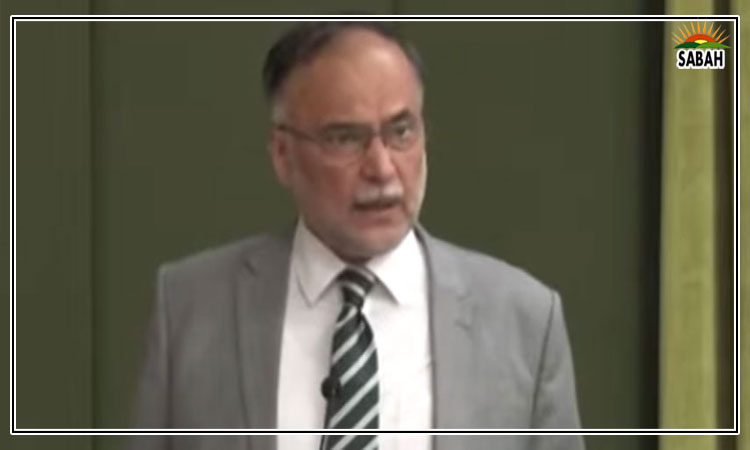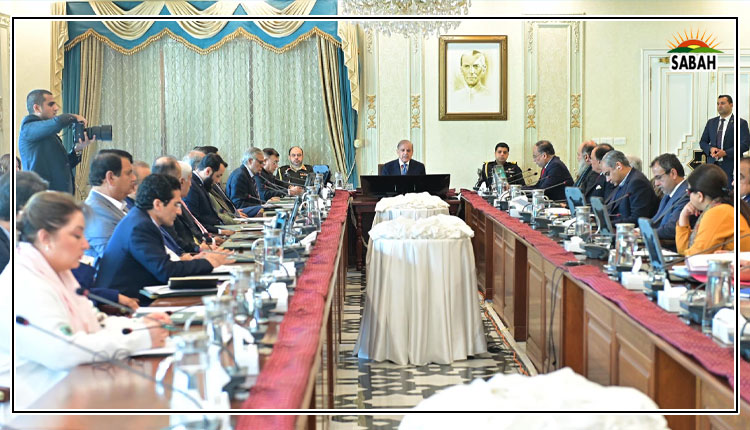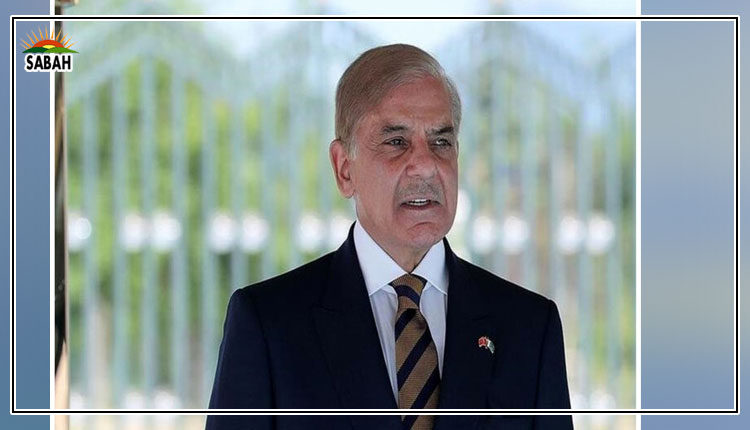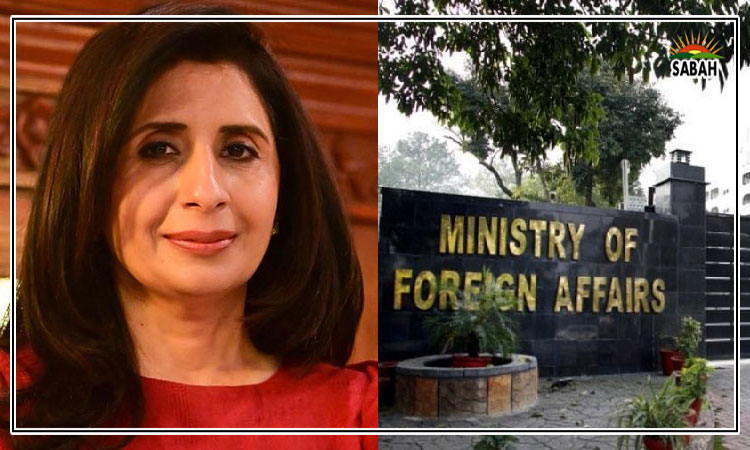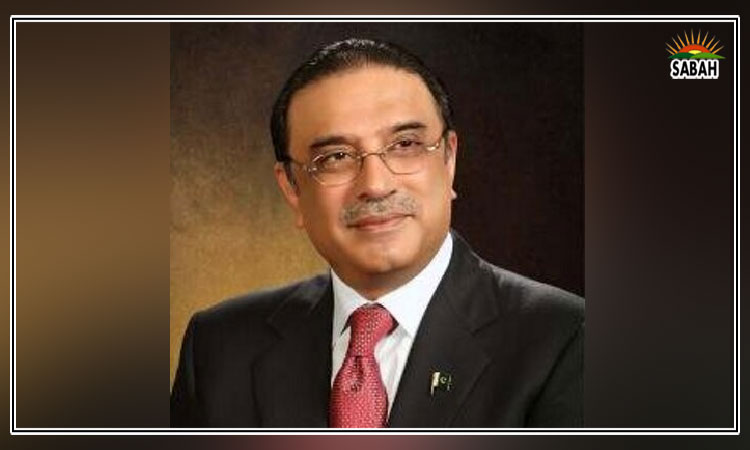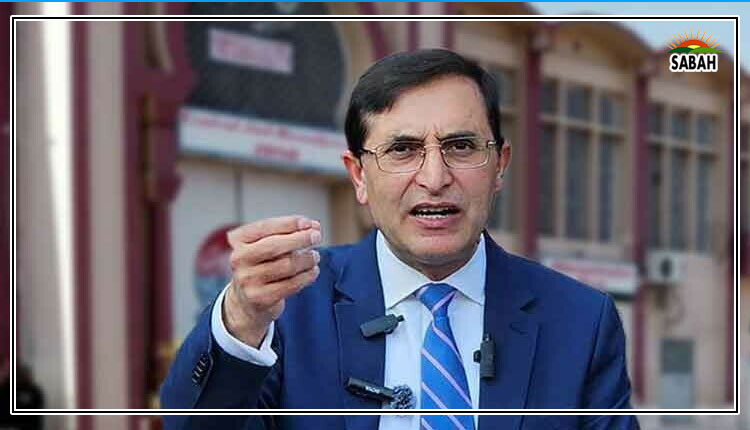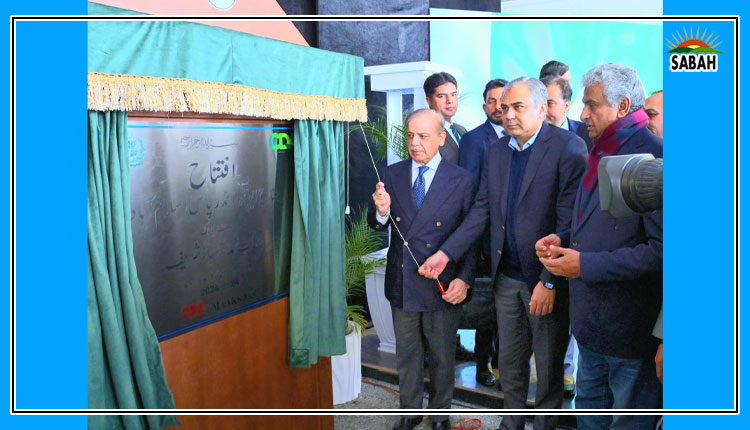Bilawal Bhutto Zardari calls for dialogue regional, Int’l players to ensure peace
ISLAMABAD, Nov 15 (SABAH): Foreign Minister Bilawal Bhutto Zardari has called for dialogue among regional and international players to ensure peace and stability at regional and international levels.
Addressing the inaugural ceremony of 11th edition of International Defence Exhibition and Seminar IDEAS-2022 in Karachi on Tuesday, Bilawal Bhutto Zardari said that Pakistan, being a responsible state, is always committed to play its role for international peace. The foreign minister said that Pakistan’s defence industry has now achieved a good level of quality and reliability and its products are comfortably competing in the international market.
He said that Pakistan is now exporting high-level defence products to more than 60 countries and scope of these exports could be extended by promoting public private partnership in the field.
He said the best way to safeguard and strengthen national security is to achieve economic self-reliance, rebuild and strengthen political institutions and ensure rule of law. He said in order to do so, each and every institution should function in its constitutional domain with primary focus on their objectives.
Bilawal Bhutto Zardari also stressed upon the need of resolution of long standing issue of Jammu and Kashmir in accordance with UN resolutions and aspirations of people of Kashmir in the interest of regional peace, progress and economic development.
The foreign minister stated that the incumbent government will continue to promote a business-friendly environment for investments in human capital and professional development and that the government was committed to delivering an industrial strategy that enhanced employment. He urged small and medium industries to join hands with the defence industries.
“When we talk about the defence industry, IDEAS is an iconic platform for showcasing the latest defence technologies, and is a regional gateway for international suppliers and manufacturers to explore new avenues of defence cooperation through joint ventures, outsourcing and collaborations,” he said.
He furthered that new technology led by a revolution in the field of Artificial Intelligence, was playing a “vital role in confronting various security challenges” and that the “responsible use of technology advancement could make the world a better and safer place”.
“Pakistan being a responsible state is always committed to playing its role for international peace and stability. Reciprocity of mutual interest and international loans are the guiding principles that govern Pakistan’s relations at the bilateral and multilateral level”.
Commenting on the regional context, he maintained that the transformation of the South Asian geo-strategic environment had further accentuated the importance of the region in world affairs. “Resultantly, regional cooperation and active engagement with regional and global players has become imperative, particularly to achieve regional peace, security and social-economic development,” he said.
Bilawal stated that instability and turmoil that had beset the region for many decades also needed a firm and coordinated response by all stakeholders, adding that Pakistan believed in a meaningful dialogue based on equality, not only to resolve bilateral issues but also to unpack economic potential.
He added that the increasingly complex security environment of the world posed multifaceted threats to national security and the stability of the country. “With the rapid advancement in technology and proliferation in knowledge we are facing a physical change in the established security paradigm. In today’s globalized world national security has emerged as a dynamic concept that is as much economic, social, political and institutional as it is military and strategic in nature,” he said, adding that in the age of fake news and disinformation the threats to national security had increased.
According to the FM, the rising global food and energy crises was putting immense strain on national cohesion thus deepening internal fault lines. “It is our opinion that the best way to safeguard and strengthen national security is to achieve economic self-reliance, rebuild and strengthen political institutions and deliver the 21st-century governance that is required,” he stated, furthering that this could be ensured by the rule of law and putting people at the centre of public policy. “This requires a much-needed reset in our thinking as well as the way we conduct business,” Bilawal added.
He said that internal consolidation alone could help the nation to secure its core economic foreign policy and security interests, adding that in order to do so each institution must not only function within its Constitutional domain but focus on its objective and on its national goal.
“For example, I am a parliamentarian, a politician, and it is my job to be answerable in Parliament, to be present in Parliament, rather than lashing out at my political opponents on the streets or in the public arena,” he said. He furthered that a forum was created where all the people of Pakistan could be represented, and where the exchange of ideas could lead to the addressing of issues of national importance through consensus so the country could “move beyond our consistent state of flux and focus on the priorities of our nation”.
“Since our unity government formed it has been engaged in bringing the country out of various challenges, the most serious among these crises … is the stabilisation of the economy,” he said, adding that the coalition government inherited an economic catastrophe where Pakistan was on the precipice of default.
He maintained that “by the grace of God and the efforts of the unity government, and the prime minister’s finance team, Pakistan was saved from the brink of an economic crisis”. He stated that it was most unfortunate that in addition to the economic impact of Covid-19 and the impact of the Russia-Ukraine conflict, the risk of economic default in Pakistan was a direct result “of conscious decision making”.
Bilawal said that this was “shooting oneself in the foot” and that all stakeholders must agree that this should never happen. “Governments come and go, political parties change, but we should never compromise the fundamentals of our national economic policy”.
He maintained that the government had been focused on making “service delivery efficient and people-centred”, fixing Pakistan’s energy woes, rebuilding Pakistan’s foreign relations and “giving a sense of stability in our policy if not the political environment”. Commenting on the country’s “strengthened” foreign policy, he said that it was a result of teamwork and extensive positive engagement across the board.
“We witnessed a positive trajectory, culminating in our exit from the Financial Action Task Force’s grey list,” he said, hoping that Pakistan’s GSP Plus status will soon be restored. The foreign minister highlighted that after things started to move in a “positive direction”, Pakistan witnessed the worst ever climate catastrophe the country ever saw.
He detailed that one-third of the land mass was underwater and that 1 out of 7, or 33 million people were impacted – which included 16 million children and 600,000 women about to give birth.
“The impacts of this on the backbone of our economy, the agriculture sector, have been devastating. The total loss and damage are more than $32 billion”. He stated that the climate event would correlate with a large section of the population being thrust below the poverty line, and given the massive scale of destruction, Pakistan had been pushed back for decades.
“But in every crisis is an opportunity and we can convert this crisis into an opportunity if Pakistan is not only investing in these rural areas but looks towards rehabilitation. We hope to do so in a climate-conscious manner. We hope to build back better,” he said. He maintained that Pakistan had successfully added loss and damage onto the COP27 agenda after it observed that no international financing mechanism was in place for a loss of this scale.
“After our experience, we joined the countries that had long been demanding loss and damage,” he said, hoping that the next country to suffer from a climate catastrophe would be able to benefit from international financing for loss and damage. He stated that climate change could reverse all endeavours for sustainable development goals and ignite and deepen national security threats.
At the outset of his speech, Bilawal said that he was pleased to see a large number of guests, including honourable delegates, exhibitors and trade visitors who travelled from around the world. “Your presence strengthens our resolve to foster strategic relations with our partners and friends while encouraging technological growth and knowledge sharing,” he concluded.



